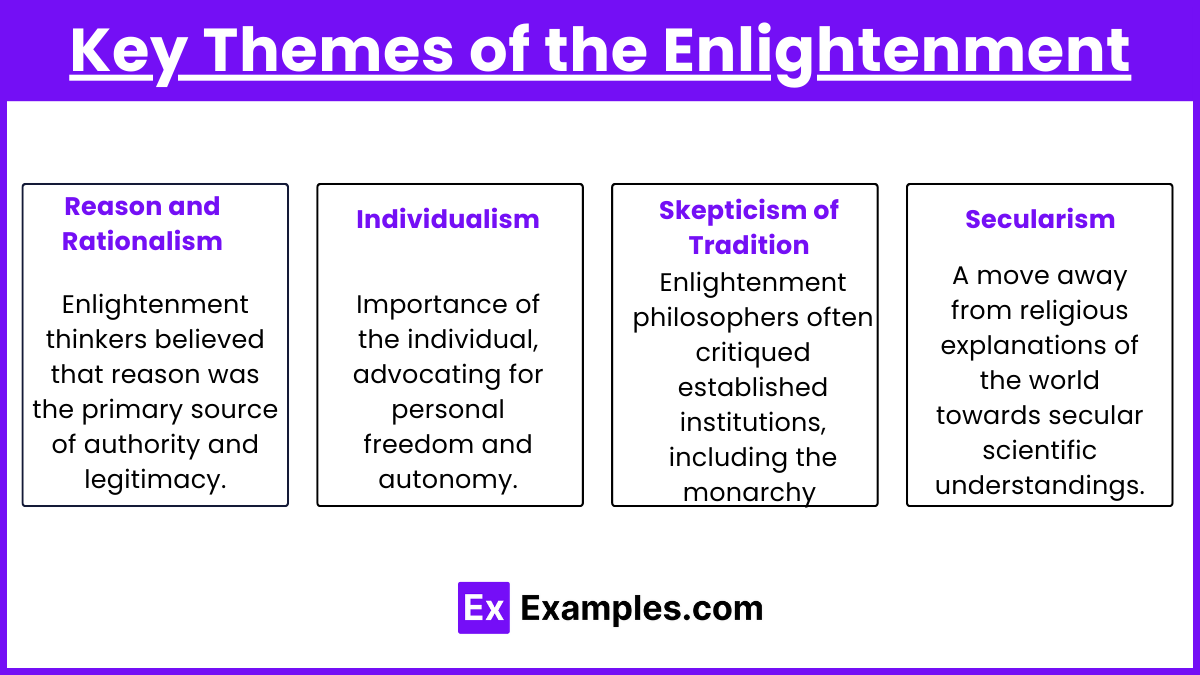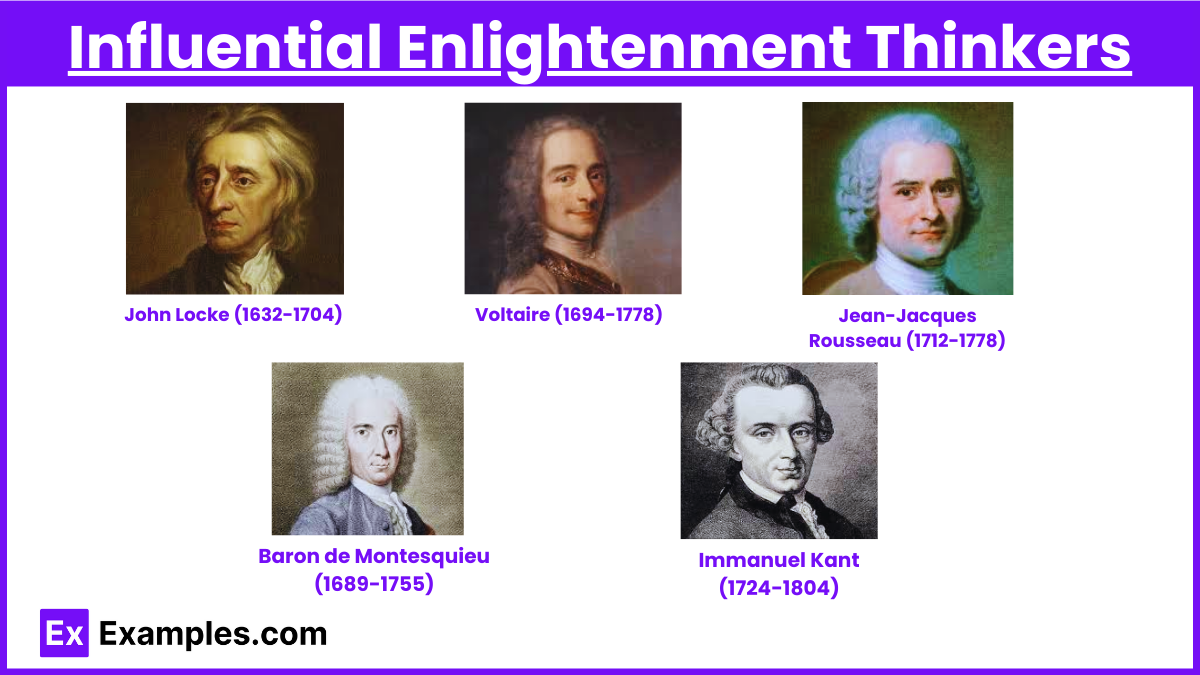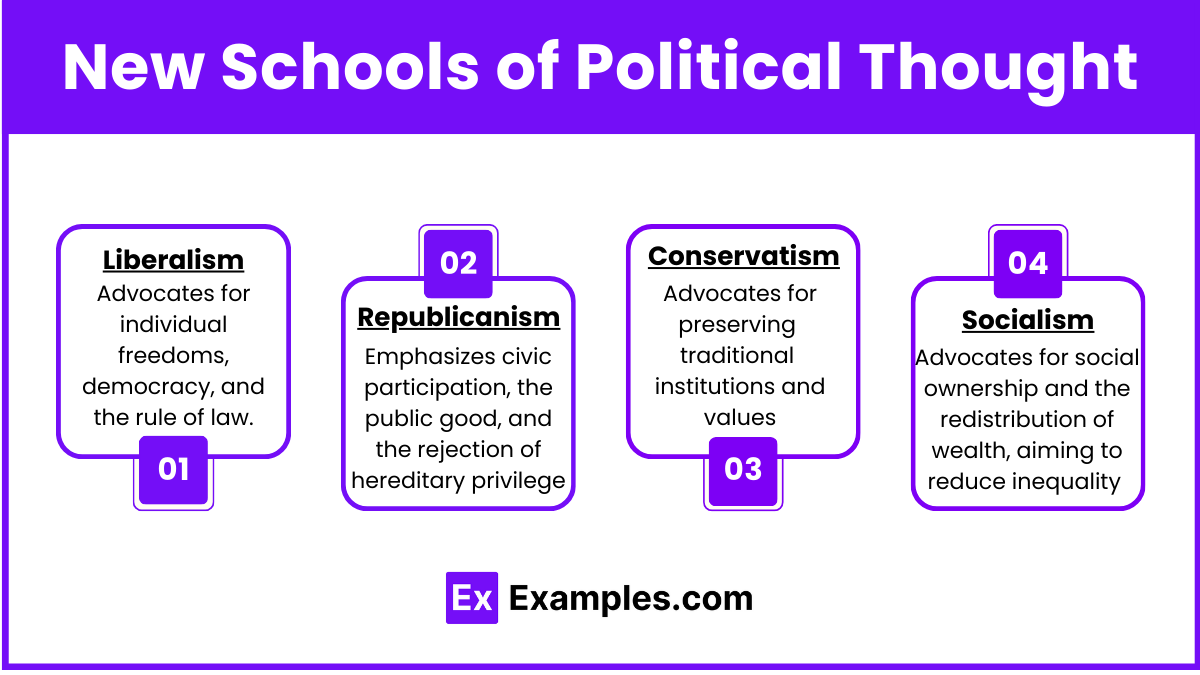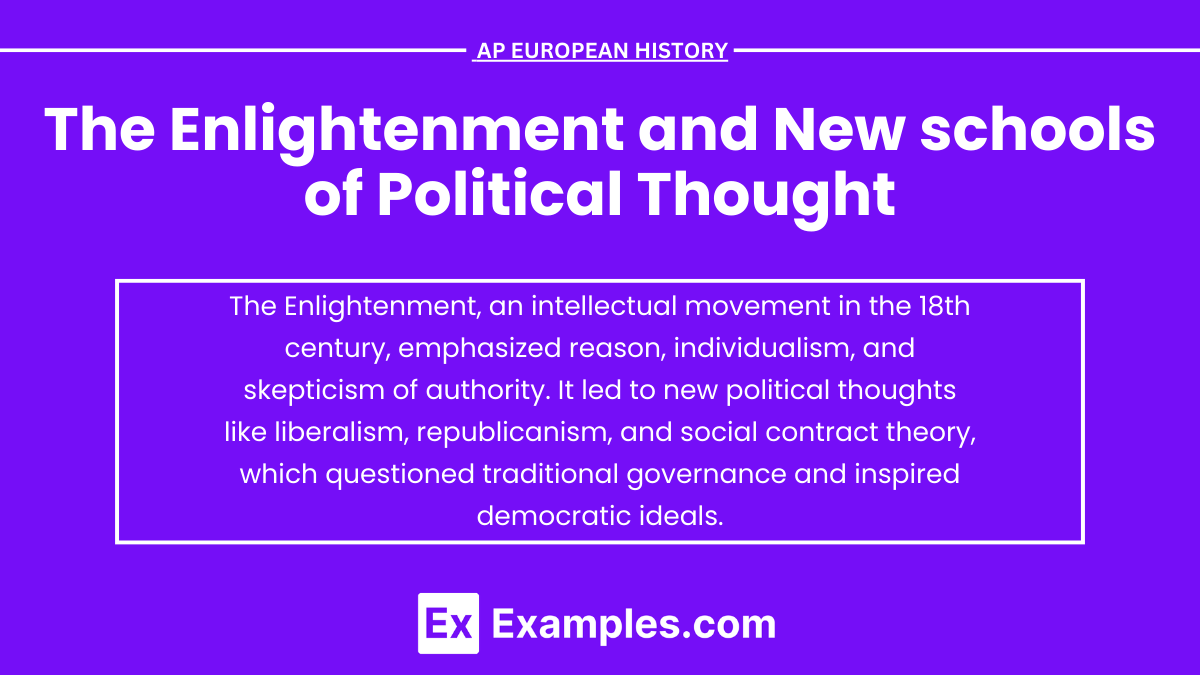The Enlightenment, spanning the 17th and 18th centuries, revolutionized Western thought through the promotion of reason, science, and individual rights. This intellectual movement critiqued traditional authority, including monarchies and the Church, advocating for societal reforms based on rational principles. Key thinkers like John Locke, Voltaire, and Jean-Jacques Rousseau introduced groundbreaking ideas that led to the emergence of new political ideologies such as liberalism, republicanism, and socialism. These schools of thought profoundly influenced the development of modern democratic societies.
Learning Objectives
For the AP European History exam, you should focus on understanding the core principles and influential figures of the Enlightenment, such as Locke, Voltaire, Rousseau, and Montesquieu. Study the key themes, including reason, individualism, and secularism, and their critiques of traditional institutions. Learn how these ideas led to the development of new political ideologies like liberalism, republicanism, conservatism, and socialism. Additionally, analyze the impact of these ideologies on the political landscape of Europe and their enduring influence on modern democratic principles.
Key Themes of the Enlightenment

Reason and Rationalism: Enlightenment thinkers believed that reason was the primary source of authority and legitimacy. They argued that human beings could use reason to solve social and political issues.
Individualism: The movement emphasized the importance of the individual, advocating for personal freedom and autonomy.
Skepticism of Tradition: Enlightenment philosophers often critiqued established institutions, including the monarchy and the Church, advocating for reforms based on rational principles.
Secularism: A move away from religious explanations of the world towards secular and scientific understandings.
Influential Enlightenment Thinkers

John Locke (1632-1704)
Key Works: "Two Treatises of Government"
Ideas: Locke introduced the concept of natural rights, arguing that individuals have rights to life, liberty, and property. He believed in the social contract, where governments are formed with the consent of the governed and must protect these rights. If a government fails, the people have the right to overthrow it.
Voltaire (1694-1778)
Key Works: "Candide," "Letters Concerning the English Nation"
Ideas: A staunch advocate of free speech and religious tolerance, Voltaire critiqued the French monarchy and the Catholic Church's influence on society. He championed civil liberties and criticized societal injustices.
Jean-Jacques Rousseau (1712-1778)
Key Works: "The Social Contract," "Emile"
Ideas: Rousseau believed that humans were naturally good but corrupted by society. He introduced the idea of the "general will," suggesting that the collective will of the people should guide governance. Rousseau also emphasized the importance of education and moral development.
Baron de Montesquieu (1689-1755)
Key Works: "The Spirit of the Laws"
Ideas: Montesquieu advocated for the separation of powers within government into executive, legislative, and judicial branches. This idea greatly influenced the development of constitutional governments.
Immanuel Kant (1724-1804)
Key Works: "Critique of Pure Reason," "What is Enlightenment?"
Ideas: Kant emphasized the importance of autonomy and moral duty. He argued that individuals should act according to universal principles that could be applied universally, known as the categorical imperative.
New Schools of Political Thought

The Enlightenment gave rise to various political ideologies that continue to influence modern political systems.
Liberalism
Core Beliefs: Advocates for individual freedoms, democracy, and the rule of law. Emphasizes the protection of individual rights and liberties.
Influential Figures: John Locke, John Stuart Mill.
Impact: Liberalism became the foundation for many modern democracies, advocating for constitutional government, free markets, and civil liberties.
Republicanism
Core Beliefs: Emphasizes civic participation, the public good, and the rejection of hereditary privilege and absolute monarchy.
Influential Figures: Jean-Jacques Rousseau, Montesquieu.
Impact: Republicanism influenced the French Revolution and the founding principles of the United States, advocating for a government based on the consent of the governed and the common good.
Conservatism
Core Beliefs: Advocates for preserving traditional institutions and values, cautious change, and respect for authority.
Influential Figures: Edmund Burke.
Impact: Conservatism emerged as a reaction to the radical changes proposed by Enlightenment thinkers and the French Revolution, emphasizing stability and continuity.
Socialism
Core Beliefs: Advocates for social ownership and the redistribution of wealth, aiming to reduce inequality and provide for the collective welfare.
Influential Figures: Karl Marx (later), Henri de Saint-Simon.
Impact: Though not fully developed during the Enlightenment, early socialist ideas critiqued the disparities of wealth and power, leading to later revolutionary movements and the establishment of socialist states.
Understanding the Enlightenment and its political thought is crucial for mastering AP European History. The era's thinkers challenged traditional authority and paved the way for modern democratic principles. By grasping these ideas, students can better appreciate the development of contemporary political systems and ideologies.
Examples of The Enlightenment and New schools of Political Thought
John Locke's Natural Rights Theory : John Locke, a prominent Enlightenment thinker, argued that individuals have natural rights to life, liberty, and property. This concept became fundamental to modern liberal political theory and influenced the development of constitutional governments.
Montesquieu's Separation of Powers : Montesquieu introduced the idea of dividing government into three branches—executive, legislative, and judicial. This structure aimed to prevent any one branch from becoming too powerful and is a key feature of many democratic systems today.
Rousseau's Social Contract : Jean-Jacques Rousseau proposed that governments should be based on the general will of the people. His ideas on direct democracy and collective sovereignty were revolutionary and contributed to the development of republican ideals.
Voltaire's Advocacy for Civil Liberties : Voltaire championed freedom of speech, religious tolerance, and separation of church and state. His writings criticized the injustices of absolute monarchy and the Catholic Church, laying the groundwork for civil rights movements.
Adam Smith's Economic Liberalism : In "The Wealth of Nations," Adam Smith introduced the concept of the invisible hand, advocating for free-market economies. His ideas formed the basis of modern economic theory and liberal capitalism, promoting minimal government intervention in markets.
Practice Test Questions on The Enlightenment and New schools of Political Thought
Question 1: Which philosopher is most closely associated with the concept of the "social contract" during the Enlightenment?
A) John Locke
B) Jean-Jacques Rousseau
C) Voltaire
D) Baron de Montesquieu
Answer: A) John Locke
Explanation: John Locke, a prominent Enlightenment thinker, is closely associated with the concept of the "social contract." In his work "Two Treatises of Government," Locke argued that individuals consent to form governments to protect their natural rights, including life, liberty, and property. This idea profoundly influenced modern political thought and the development of democratic principles. Jean-Jacques Rousseau also discussed the social contract, but his approach and emphasis differed from Locke's, focusing more on the collective will and direct democracy.
Question 2: What was a central theme of Voltaire's writings during the Enlightenment?
A) Advocacy for absolute monarchy
B) Critique of religious intolerance and advocacy for freedom of expression
C) Support for the divine right of kings
D) Promotion of economic mercantilism
Answer: B) Critique of religious intolerance and advocacy for freedom of expression
Explanation: Voltaire, a leading figure of the Enlightenment, was known for his sharp critiques of religious intolerance and his strong advocacy for freedom of expression. His famous work, "Candide," and other writings often satirized the Catholic Church and the injustices perpetrated by religious institutions. Voltaire championed reason, skepticism, and the separation of church and state, which were key themes of the Enlightenment. He believed in the importance of individual liberty and the right to free speech, which were fundamental to his philosophy.
Question 3: Baron de Montesquieu's concept of the separation of powers primarily influenced which country's political system?
A) France
B) Spain
C) United States
D) Russia
Answer: C) United States
Explanation: Baron de Montesquieu, an Enlightenment thinker, introduced the concept of the separation of powers in his seminal work "The Spirit of the Laws." This idea advocates for dividing government authority into three branches: executive, legislative, and judicial. Montesquieu's theory aimed to prevent any single entity from gaining excessive power and to ensure a system of checks and balances. This concept significantly influenced the framers of the United States Constitution, who adopted a similar structure to safeguard liberty and prevent tyranny. The U.S. government, with its distinct branches and system of checks and balances, is a direct reflection of Montesquieu's ideas.


